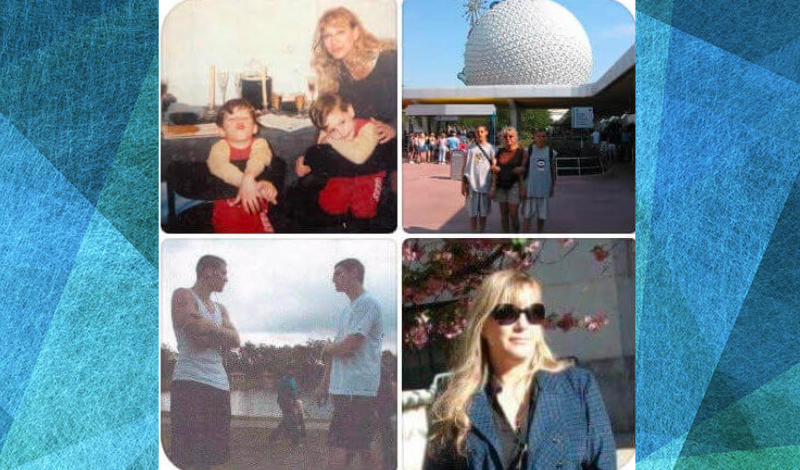
A surprising diagnosis
The only thing more remarkable than the fact that it has been 18 years since Alisa Brenes learned that she had lung cancer is how her medical team arrived at her diagnosis.
Alisa was in her early 40s and a single mom when she lost her mother to lung cancer, the same disease that claimed the lives of her grandfather, great-grandfather, and several aunts and uncles.
At the time, Alisa was struggling with knee pain so intense that she was having trouble navigating the subway stairs in her beloved hometown of NYC. With none of the telltale symptoms usually associated with lung cancer — a persistent cough, chest pain or shortness of breath — it never occurred to her that her aching knees would lead to a lung cancer diagnosis.
At a visit to her Primary Care Physician (PCP), there happened to be a visiting physician with whom she shared information not only regarding the unrelenting pain in her knees, but also the strong history of lung cancer in her family. It was this doctor who suggested getting a baseline chest x-ray, with knowledge of a little-known fact that 10% of lung cancer patients have a hormone that is excreted from the tumor and attacks the long bones. Days later, Alisa would learn that she had a large tumor in her right lung. Soon after that, she had her middle lobe removed and underwent six cycles of chemotherapy. And, of note, her knee pain completely disappeared.
Parenting with cancer
As a single parent, Alisa not only bore the brunt of her treatment, but also the responsibility of parenting with cancer and caring for her boys. Just 9 years old at the time, and having lost their grandmother to the very disease their mother now had, Alisa’s children were understandably fearful. When her hair began to fall out from the chemotherapy, the boys were, in Alisa’s words, “freaked out.” So she invited them into the bathroom, each armed with a pair of scissors. It was then that her straight A-earning, highly competitive children took turns cutting her hair. And as an unintended but excellent consequence, had a blast. More importantly, this exercise further strengthened their combined resolve.
Her young boys are now young men, something Alisa feared she would not live to see. Thanks to her fierce determination to beat lung cancer and embrace life, the threesome have wonderful memories from their travels to Costa Rica, Disney World, Canada, Washington, Pennsylvania, and, perhaps most exciting, China.
An ongoing fight for her life
Alisa’s most recent scan indicated a slight change in a nodule that her medical team has been following for the past several years. She will return for another scan later this year. In the meantime, she will continue living and parenting with cancer in a way that inspires both her children and the lung cancer survivor community.
In sharing her family’s history of lung cancer, Alisa saved her own life. Early detection for lung cancer increases treatment options and, more importantly, survival rates. If you have any concerns regarding your risks for lung cancer, please make an appointment with your primary care doctor and discuss your concerns.
Thanks to new Research, doctors have more tools in the toolbox available that bring Hope to lung cancer patients, their families, and caregivers for prolonging Life.

